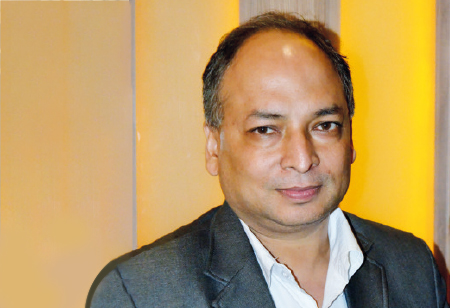The Era Of Driving Performance Through Culture
By Deepak Harlalka, SVP & CFO, Raychem RPG

Deepak Harlalka, SVP & CFO, Raychem RPG
RPG Enterprises, an establishment of over 30 years, is one of India's fastest growing business groups with a turnover of over US$ 3.5 Billion. The group has more than fifteen companies managing diverse business interests in the areas of Automotive Tyres, Infrastructure, IT and Specialty including Pharmaceuticals, Power Ancillaries & Plantations.
Who drives performance in business? Boards, Promoters, Management Teams, Operational Leaders, Employees shareholders Lenders and many more. Seems everybody is driving performance and do contribute whatever is expected from their role which should align with the overall objective. There are teams for various aspects of key function and these are headed by team leaders. This is the traditional concept and we continue to follow this today. Some times on failures of performance, it seems few of them have failed to deliver while few others have succeeded. Despite the clarity on roles you really cannot take a conclusion on this and fix responsibility as this becomes a silo driven performance drive. In the era of digitization, business intelligence tools, integrated ERP, dashboards instant reporting and the connected shop floor is driven by Industry 4, can culture take over to drive performance? This is more important as we need to respond to the business issue instantly to be competitive. The right culture at each level can remove the practice to review performance and business review meetings on discussion and decisions. Can we connect silos of various functions working separately and bring each person to follow the right culture to drive the common goal? Can these silos have a common thread of performance culture? Let us examine this aspect based on evolving trends and how it can be possible.
Culture means few things like the way we do respond, value system high ownership index within, sense of urgency ethical standards we follow respect for everyone reward and recognition, fair practices in dealings with all. As we move towards a lean organization due to automation and expectation of gen next to empower themselves for decision as well as to grow fast in the organization to a leadership role, there is a need to build a better work environment with fewer reviews and more empowerment. People want to take responsibility and ownership and availability of big data analytics makes decision little logical and easy at the operational level. Formulation and change of strategy are more frequent and needed to be initiated at the operational level on the ground. Hence it becomes so important that each one must behave like a promoter and owner. He or she should believe that they own the business while taking decisions. This will be bringing most of the aspects of culture within.
"Formulation and change of strategy are more frequent and needed to be initiated at the operational level on the ground"
Imagine an organization where each one believes that he or she is not a professional/employee but an owner of the organization. What will this lead to? People are such organization will tend to be selfdiscipline take the right decision, will be ethical, look forward to doing aggressive profitable growth with high performance, more loyal and will look forward to better rewards and recognition. In bad times such organization will still be able to retain people. When each one relates to outcome due to his own decision the probability of high performance is more.
You will find that most of the review meetings which are supposed to drive performance normally end with very few right and useful conclusions. In most of the meetings, the focus is less on decision based on micro and external information and more on a very macro view of the organization. On top of these the decisions mostly are biased as no one wants to confront the senior leadership on top. This practice is going to change in the era we are moving where decisions have been based on information and facts. For this the power of delegation of decisions making and empowerment to drive performance on the ground is key.
Another challenge in the traditional mode of performance drive is acceptance of incorrect strategy and decision on the top ladder of leadership. Decisions which have not delivered the performance needs to be accepted fast and course correction should happen quickly. Cultural change is very critical on this on a leadership level. Openness and acceptance of failure are easier on the ground as compared to leaders on top. Each level of organization should be willing to accept the error of judgment and incorrect decisions as soon as it is realized as a culture for right course correction. Big data analytics and industry for help in this regard constantly and will remind based on reported dashboards. Decisions and discussion on factual data and trend will make this happen as we in vibe this in culture.
In conclusion, we can very well visualize and create an organization of the future where culture takes over the role to drive performance as part of the DNA of the organization. The performance can be driven by a set of effective practices and inbuilt culture. There will not be a need for any review by leadership and online reporting through various dashboards at each functional level will remain open to everyone to align and drive for delivery at best. Each member of the team becomes his own reviewer and seeks help from team members if needed. People can focus more on the deviation of performance parameters and required solutions rather than discussing issues in very informal ways and at the platform which normally does not provide a solution. The level of team building and people engagement will go up significantly. This is the future, and we cannot avoid this. We all need to accept this and be ready with change.


